Where are the bees??
gromitsmom
15 years ago
Related Stories
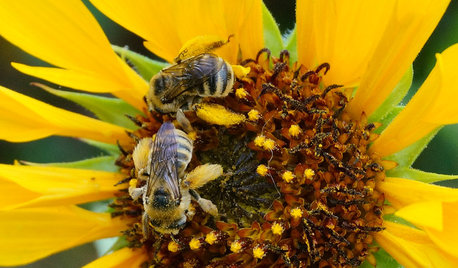
EARTH DAY12 Entertaining ‘Bee-haviors’ of Native Bees
The parade of pollinator antics is another reason to create a garden that nurtures native bees
Full Story
DECORATING GUIDESHoneycomb Shapes Are the Bee’s Knees
The hexagon is everywhere in nature — in honeycombs, tortoiseshells, snowflakes. Why not replicate it in home design?
Full Story
GARDENING FOR BUTTERFLIESGardening for the Bees, and Why It’s a Good Thing
When you discover how hard bees work for our food supply, you may never garden without them in mind again
Full Story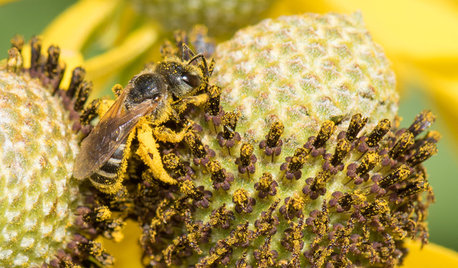
GARDENING GUIDESWelcome Sweat Bees to Your Garden Throughout the Growing Season
Look before you swat! These friendly sweat bees will feed on your sweat on a hot summer day, but their main buffet is flowers
Full Story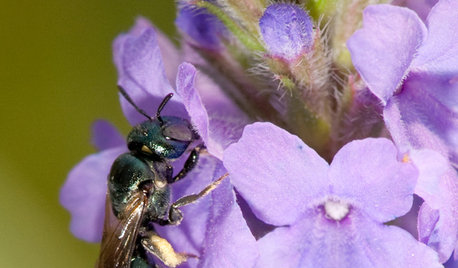
GARDENING GUIDESSmall Carpenter Bees Are Looking for a Home in Your Plant Stems
Provide flowers and nesting sites in your garden for this beautiful, tiny, metallic blue wild bee — your plants will thank you
Full Story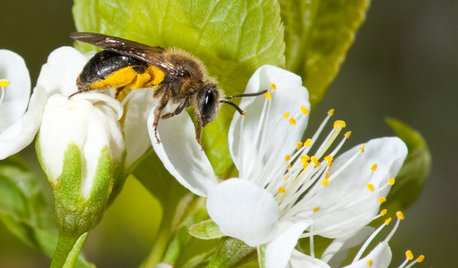
GARDENING GUIDESInvite Mining Bees to Your Garden by Planting Their Favorite Plants
Look for mining bees (Andrena) pollinating woodland wildflowers in U.S. gardens this spring
Full Story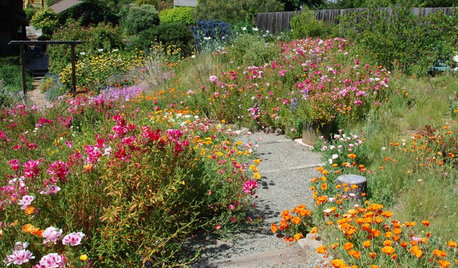
EARTH DAYHow to Design a Garden for Native Bees
Create a garden that not only looks beautiful but also nurtures native bees — and helps other wildlife in the process
Full Story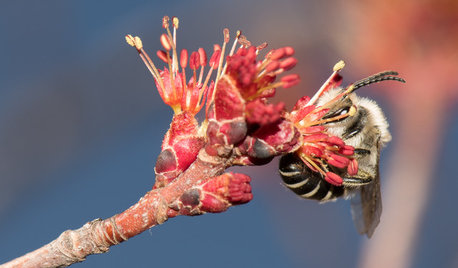
GARDENING GUIDESInvite Cellophane Bees to Your Garden by Providing Patches of Bare Soil
Look for cellophane bees (Colletes) pollinating flowering trees and shrubs in U.S. gardens this spring
Full Story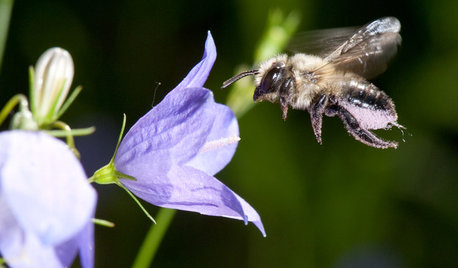
GARDENING GUIDESPut Out the Welcome Mat for Leafcutter Bees in Your Garden
Provide a diversity of flowering plants from spring through fall for these charismatic native bees, and you won’t be disappointed
Full StorySponsored







bpgreen
albert_135 39.17°N 119.76°W 4695ft.
Related Professionals
Wrentham Landscape Architects & Landscape Designers · Kenmore Landscape Architects & Landscape Designers · Kyle Landscape Architects & Landscape Designers · Belmont Landscape Contractors · Dallas Landscape Contractors · Englewood Landscape Contractors · Holtsville Landscape Contractors · Northport Landscape Contractors · Thonotosassa Landscape Contractors · Greenfield Landscape Contractors · Annapolis Siding & Exteriors · Billings Siding & Exteriors · Leesburg Siding & Exteriors · Tigard Siding & Exteriors · West Haven Siding & Exteriorspawsitive_gw
arctictropical
plantgirl_sfg
theoriginalskooby
kliddle
stevation
bpgreen
snowdogmama
theoriginalskooby
kliddle
wjblackley